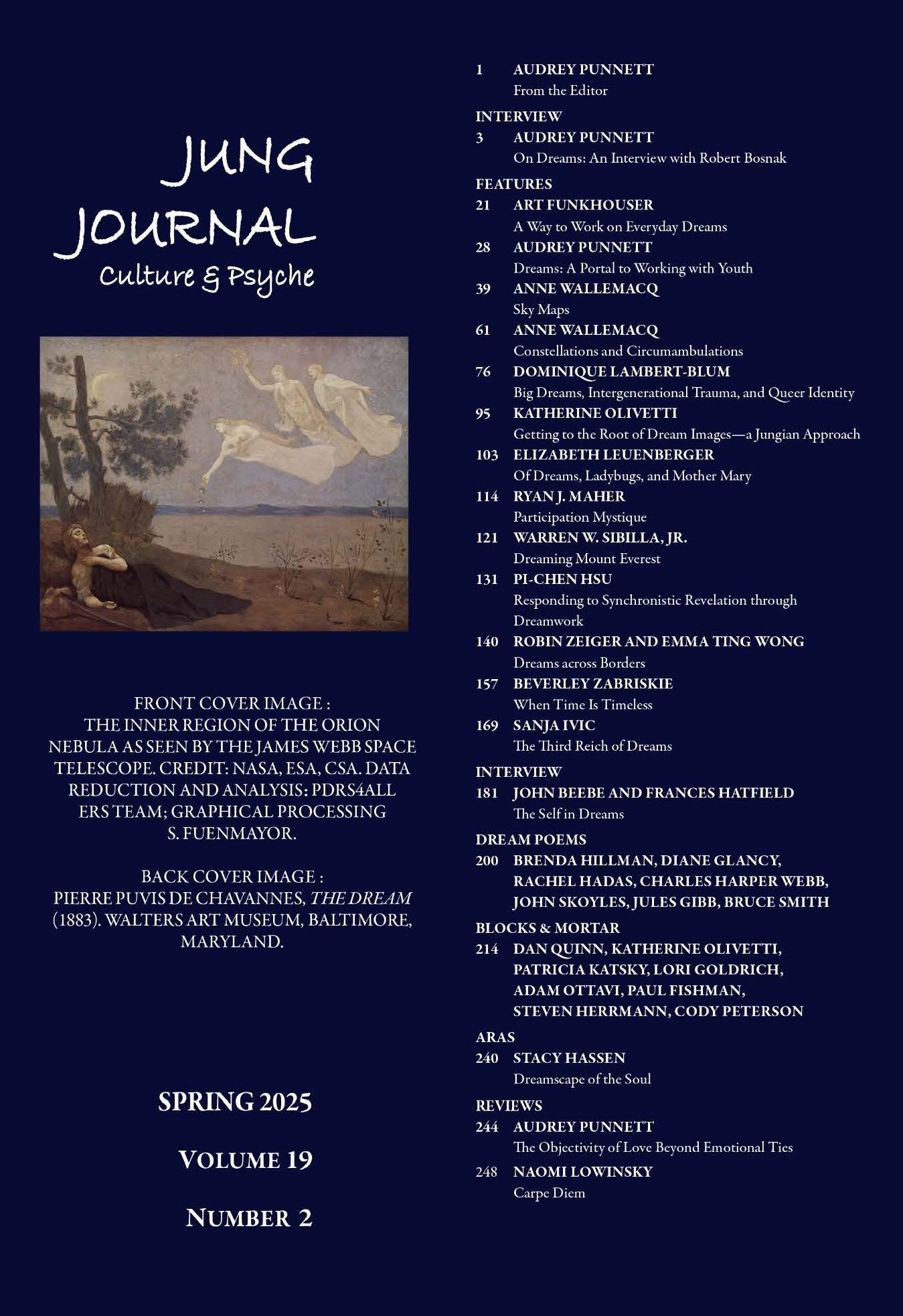From the Editor
“. . . our dreams are like windows that allow us to look in, or to listen in, to that psychological process which is continually going on in our unconscious.” –C. G. Jung, Nietzsche’s Zarathustra, November 14, 1934
Envisioning a cover image for this issue to capture dreams was a challenge. The images by famous painters did not seem to encompass fully the expansive nature of what dreams hold for the dreamer. I was looking for something more celestial, and I happened to go to a photographic reception by a photographer who cap-tures digitally landscapes with dramatic skies. It was close to what I was looking for, but not quite right. In discussing with him what I was envisioning, he pulled up on his phone the Orion nebula, which appeared as a star in one of his photographs. A nebula was what I was looking for—we had a cover image!
The Orion Nebula, an enormous cloud of dust and gas, is the nearest star-forming region to Earth, located approximately 1,350 light-years away and is about 2 million years old according to NASA Jet Propulsion Laboratory (Dobrijevic, 2021). As part of the Milky Way galaxy, it encompasses clusters of massive hot stars; the nebula is the only one visible to the naked eye. Cultures from around the world have given it special significance due to its prominence. For example, the Maya of Mesoamerica envision the lower portion of Orion as being the hearthstones of creation, a cosmic fire of creation surrounded by smoke (NASA 2013, https://www.nasa.gov/image-article/cosmic-hearth/). A portion of the Orion constellation is named for the Greek mythological hunter. The formation of the new stars and potential for creativity reminded me of the vastness of the unconscious and of images being formed that speak to us in our dreams.
To read the complete article, go HERE.


